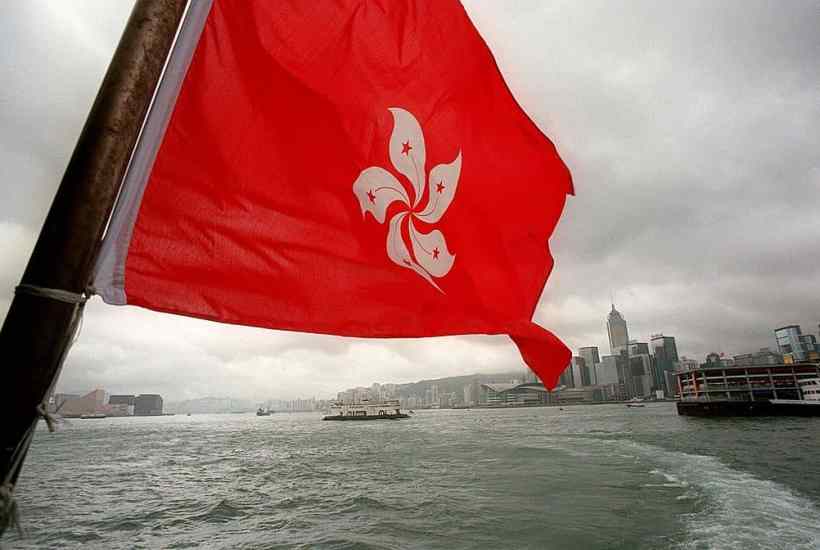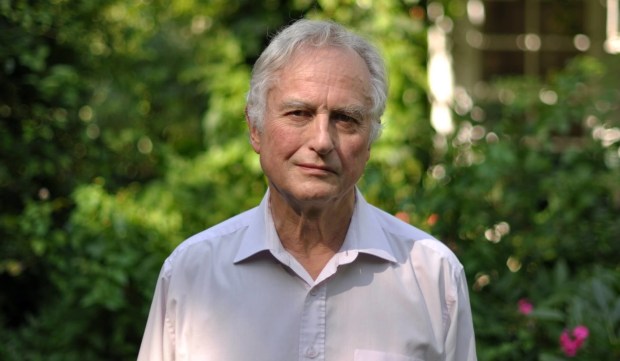What would the world be like if the British Empire had never existed? Critics of British colonialism say that the countries that fell under its rule would have been better off without it; the Empire’s supporters say it brought progress and prosperity in its wake.
So who’s right? The truth is hard to find. After all, one of the difficulties in assessing the legacy of British colonialism in many ex-colonies is the lack of a counterfactual. Put simply, we don’t know what a place would be like if it hadn’t been colonised. But Hong Kong is a special case. Since the bulk of China, except tiny bits like Hong Kong, were never colonised by Western powers, a counterfactual for Hong Kong exists: just look across the border to mainland China for an alternative to colonial rule.
Tens of thousands of Hong Kongers have made their way to Britain in recent years as China’s crackdown continues. The affection they feel for the UK is nothing new: in 1997, when British rule was coming to an end, pollsters asked people in Hong Kong their views on the empire. The result was decisive: three quarters said Hong Kong would have been ‘worse off’ and only 5 per cent said ‘better off’ without it. Another poll found that 65 per cent of people in Hong Kong thought that British rule is more good than bad; only 3 per cent thought that it was more bad than good.
Even before Britain pulled out of the peninsula, many people in Hong Kong knew from their own experience what the alternative was – and how little it appealed. The 1961 Hong Kong census found that of the more than 3.1 million people in Hong Kong, half were born in mainland China and only 47.7 per cent were born in Hong Kong itself. Many had fled the mainland as Mao’s terror took hold. They escaped oppression and misery in China; these people – my grandparents were among them – and their descendants, found a better life in the British colony. It’s a story you don’t hear all too often nowadays when discussion turns to the legacy of empire.
Perhaps it’s not surprising that British Hong Kong would compare well to Communist China. But comparisons between China and Hong Kong painted the British Empire in a favourable light long before Mao came to power.
The 1931 Hong Kong census found that of the more than 840,000 people in Hong Kong, 66.7 per cent were born in mainland China and only 32.9 per cent were born in Hong Kong (including those born in the New Territories). The border between Hong Kong and China was much more open before the communists took charge, so migration to Hong Kong was easier in this early period. Similar patterns were true even in the 19th century. Indeed, throughout almost the whole existence of British Hong Kong, it was a hotspot destination for mainland immigrants. These people had the choice of where to live, and in huge numbers they opted to live under the British flag, rather than in China.
Why did they choose to do so? The reality is that while the British Empire was flawed in many ways, it offered a brighter alternative. It is easy to forget that the freedom, human rights and democracy we enjoy in various degrees nowadays are relatively recent developments, only being established in the Western and Western-influenced world in the last century or two. It is tempting to imagine that, before the arrival of Western colonisers, people lived peacefully in harmony, free and happy, in a land with no oppression and discrimination, ruling themselves. But this just isn’t true. In reality, those in China often lived miserable, unfree and powerless lives, under the fist of an emperor who ruled like a brutal dictator, and who in many cases were not even of the same ethnicity as them. Indeed, discontent was ubiquitous and rebellions common throughout Chinese history. Even before the Opium War (1839–1842), the Chinese government was troubled by rebellions and uprisings; the White Lotus Rebellion (1796–1804) and Eight Trigrams uprising (1813), in which some hundreds of thousands were killed, are just two examples. The Taiping Rebellion (1850–1864) was far more violent still: it resulted in the deaths of millions.
In such a charged atmosphere, the Chinese government routinely resorted to extreme measures to uphold its imperial authority. Summary executions without trial were routine. The summer of 1855 was one of the bloodiest: some 70,000 people – at least half of whom were probably innocent of the charge of rebellion – were beheaded in Guangzhou city alone.
This bloodshed was not unusual; such was the criminal justice system in China at that time. In contrast, in British Hong Kong in the same period, the most high-profile case was the Esing Bakery incident in 1857, where several hundred European residents were poisoned after eating bread from the Chinese-owned Esing Bakery in Hong Kong. The proprietor of the bakery, Cheong Ah-lum, was accused of plotting the poisoning. But he got a fair trial in the colonial court; due to lack of evidence, he was acquitted by the jury. The same is unlikely to have happened on the mainland.
If incidents like this serve as a comparison between the two respective justice systems, it is no wonder a large number of mainland Chinese migrated to Hong Kong in this period. Between 1841, the year the colony was established, and 1857, Hong Kong’s population rose from 7,500 to 77,100 (of whom 75,700 were Chinese). The relatively benign British legal system was one of the reasons that Hong Kong was so attractive to Chinese immigrants.
Of course, we shouldn’t forget the flaws in colonial rule in Hong Kong. Especially in the early period before World War II, racism and discrimination manifestly existed. For much of the time of British rule, the top level of government was dominated by white British except for a few ethnic Chinese appointed to the Legislative and Executive Council. In the 19th century, Chinese people were often treated differently and more harshly than Caucasians by the colonial law enforcement and justice system. And from 1904 to 1946, for ‘public health’ reasons (in response to the bubonic plague endemic that ran from 1894 to 1929, to protect Europeans from the ‘poor hygiene practices’ of the Chinese), ethnic Chinese people were banned by law from living in one area of Hong Kong. This was effectively a form of legalised segregation.
But how did life in China compare? The Chinese government was not democratic, so ordinary Chinese people hardly had more power in China. And while ordinary people in Hong Kong would not have seen their leadership as representative, the same was true on the mainland: up until 1912, Chinese people in China were not even ruled by people of the same ethnicity, nor were they treated equally.
Why? Because the Chinese government from which the British took Hong Kong was not, in fact, Chinese. Instead, it was Manchurian: a group of people who had conquered China in the 17th century. The Manchu ruled over China as alien conquerors, maintaining their power over the culturally different ethnic Chinese people with racist and discriminatory practices. The Manchus had set themselves up as a privileged minority separate from and superior to the Chinese people. Manchus dominated the top level of China’s government, despite only making up a little more than 1 per cent of China’s population. They received preferential treatment over Chinese people legally, politically and economically; they were dealt with more leniently under the law, had more opportunities to enter and advance in government service, and received stipends not available to the Chinese. What’s more, the Manchu and Chinese were administratively and residentially segregated, and they were banned from intermarrying. Indeed, imperialism and discrimination was not a European invention – it had been the norm throughout history until the arrival of modern Western ideals in the modern time.
Given the persistent flow of Chinese migration into British Hong Kong, what did those people who experienced both places at the time say? One of the most famous and respected figures in Chinese history, Sun Yat-sen, also known as the father of modern China, was someone who had such first hand experience. He moved to Hong Kong in 1883 in his youth to study; many years later he became the leader of the revolution which overthrew the Chinese monarchy in the mainland in 1912.
In 1923, he gave a speech at the University of Hong Kong, where he discussed the reason why he became a revolutionary. He recalled that when he came to study in Hong Kong more than thirty years before ‘Hong Kong impressed me a great deal’. He was struck by the order, safety and security in the peninsula, in contrast to the mainland where it was the opposite. And he noted how in Hong Kong, government corruption ‘was the exception’, while in China it ‘was the rule’. His time in Hong Kong led him to realise that a better way was possible – and ultimately took him on the path to seeking to implement a new government based on Western models. ‘We must carry this English example of good government to every part of China,’ he said.
Of course, Sun Yat-sen was no fan of colonialism. As one of the early proponents of democracy in China, he believed that the Chinese people should rule themselves. But the main target of his anti-imperialism was not the British leadership in Hong Kong, but the Manchu in mainland China.
His aim – to free China from the Manchus – ultimately came true. Yet he would have been sorely disappointed by what followed: a civil war between warlords; the Japanese invasion of China; and after that the communists seizing power only to carry out countless atrocities. For decades, waves and waves of Chinese migrants and refugees continued to flee to Hong Kong to find safe haven in the British colony. Now that China imposes its will on the peninsular once more, many now seek a new life in Britain itself.
Got something to add? Join the discussion and comment below.
Get 10 issues for just $10
Subscribe to The Spectator Australia today for the next 10 magazine issues, plus full online access, for just $10.




















Comments
Don't miss out
Join the conversation with other Spectator Australia readers. Subscribe to leave a comment.
SUBSCRIBEAlready a subscriber? Log in